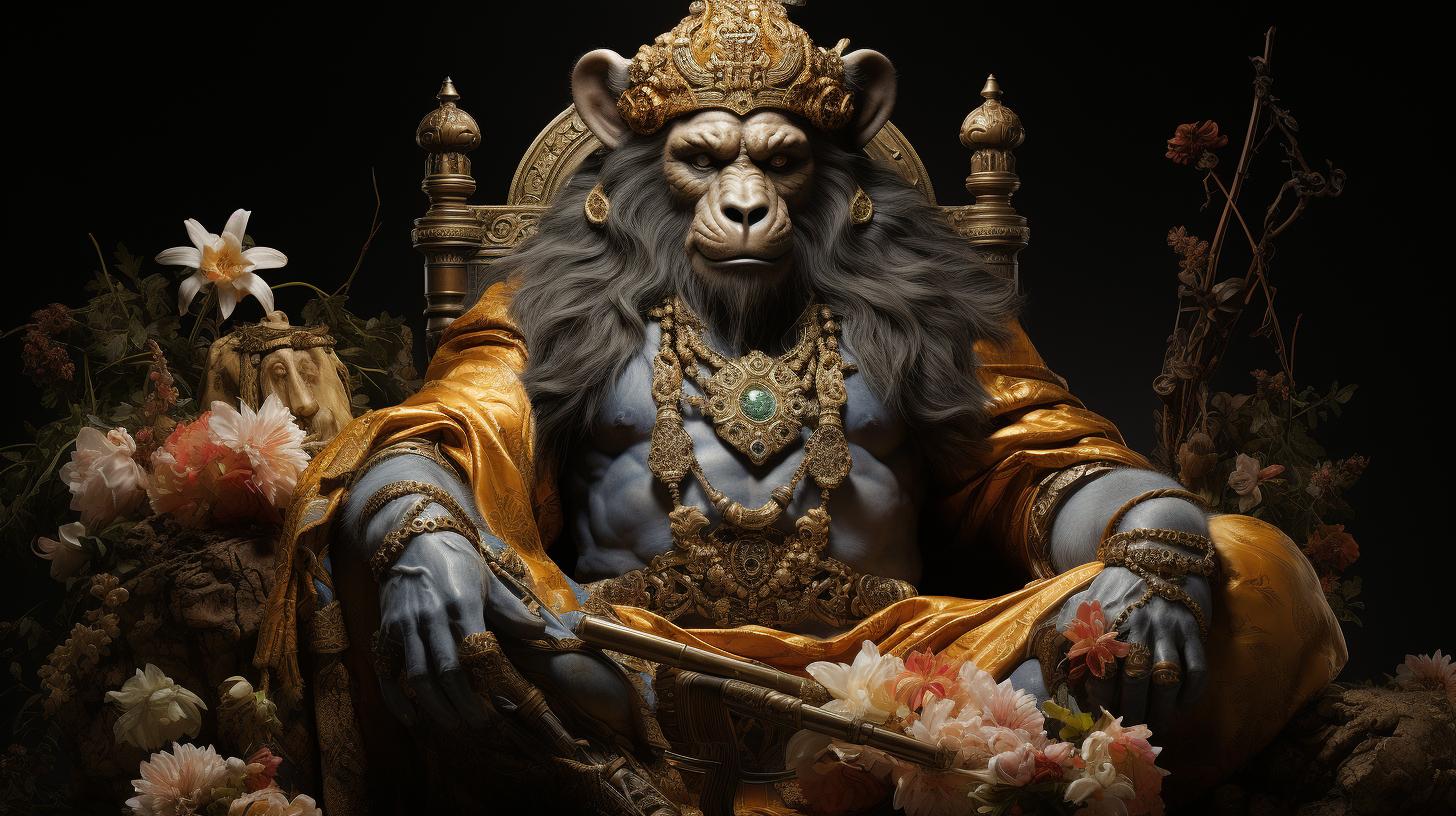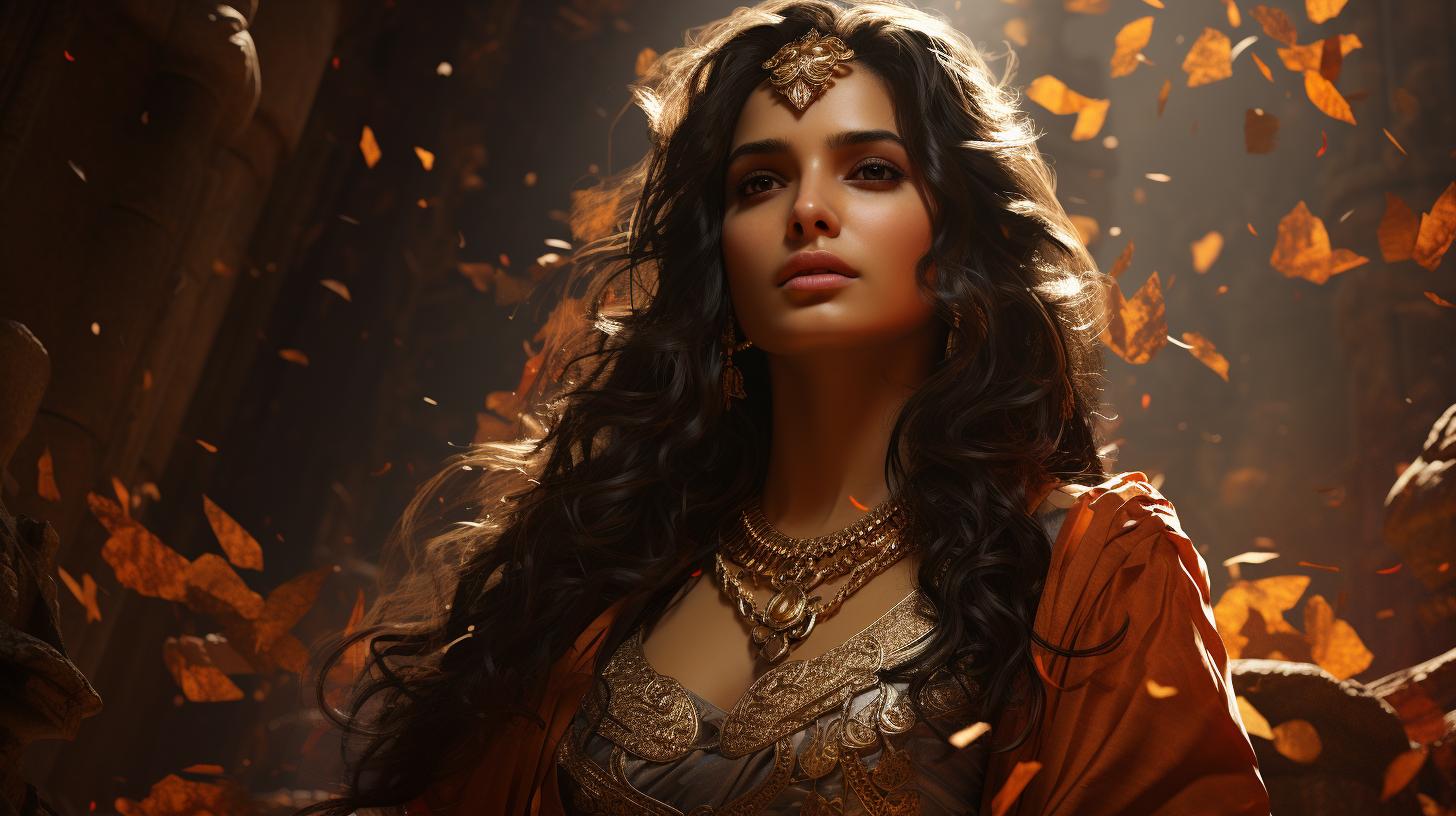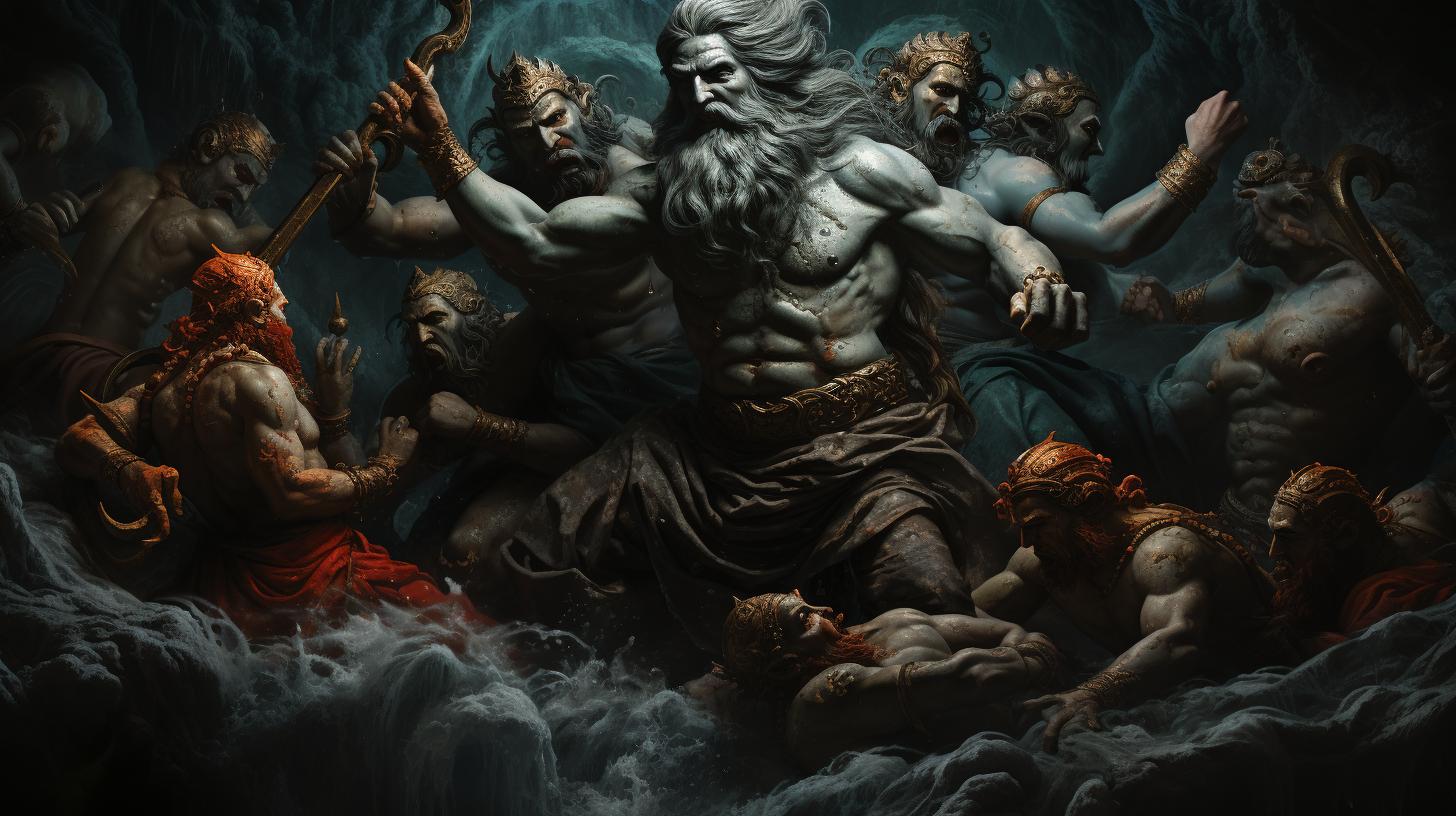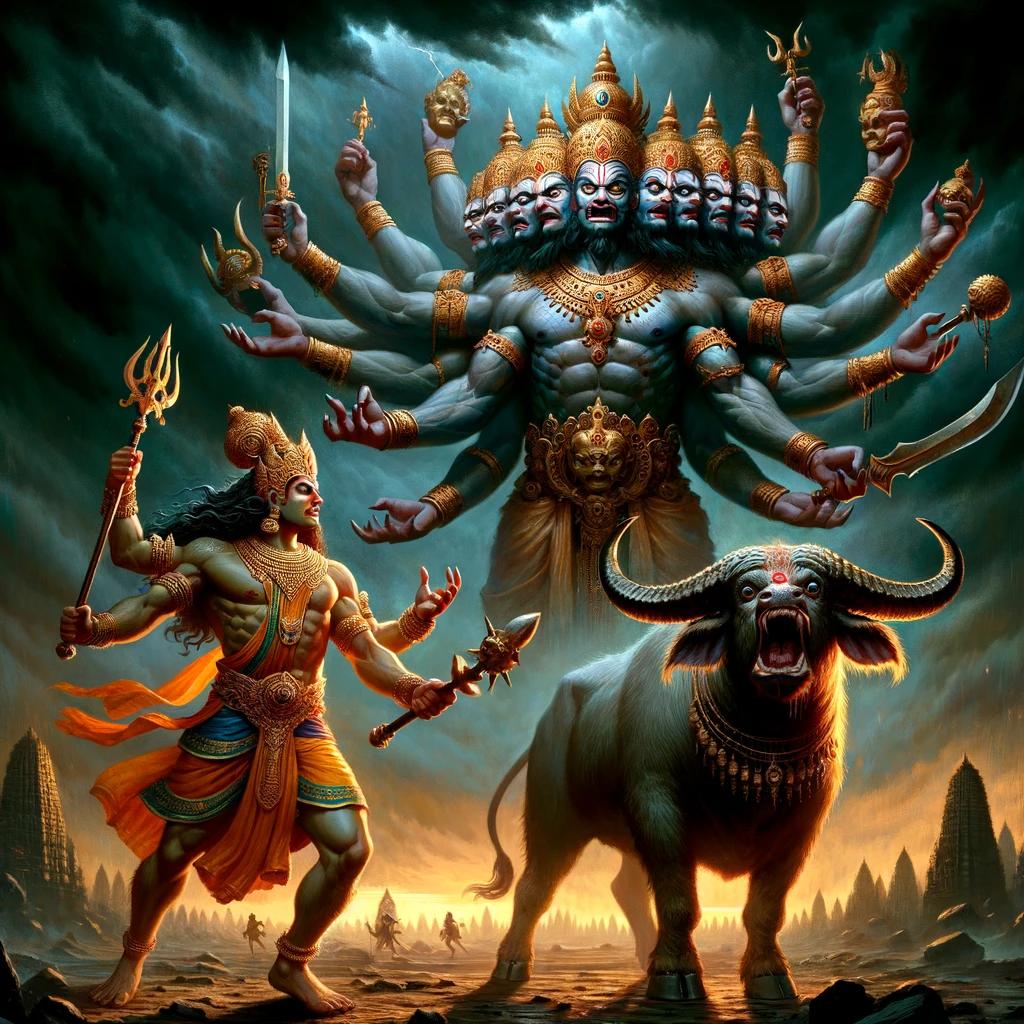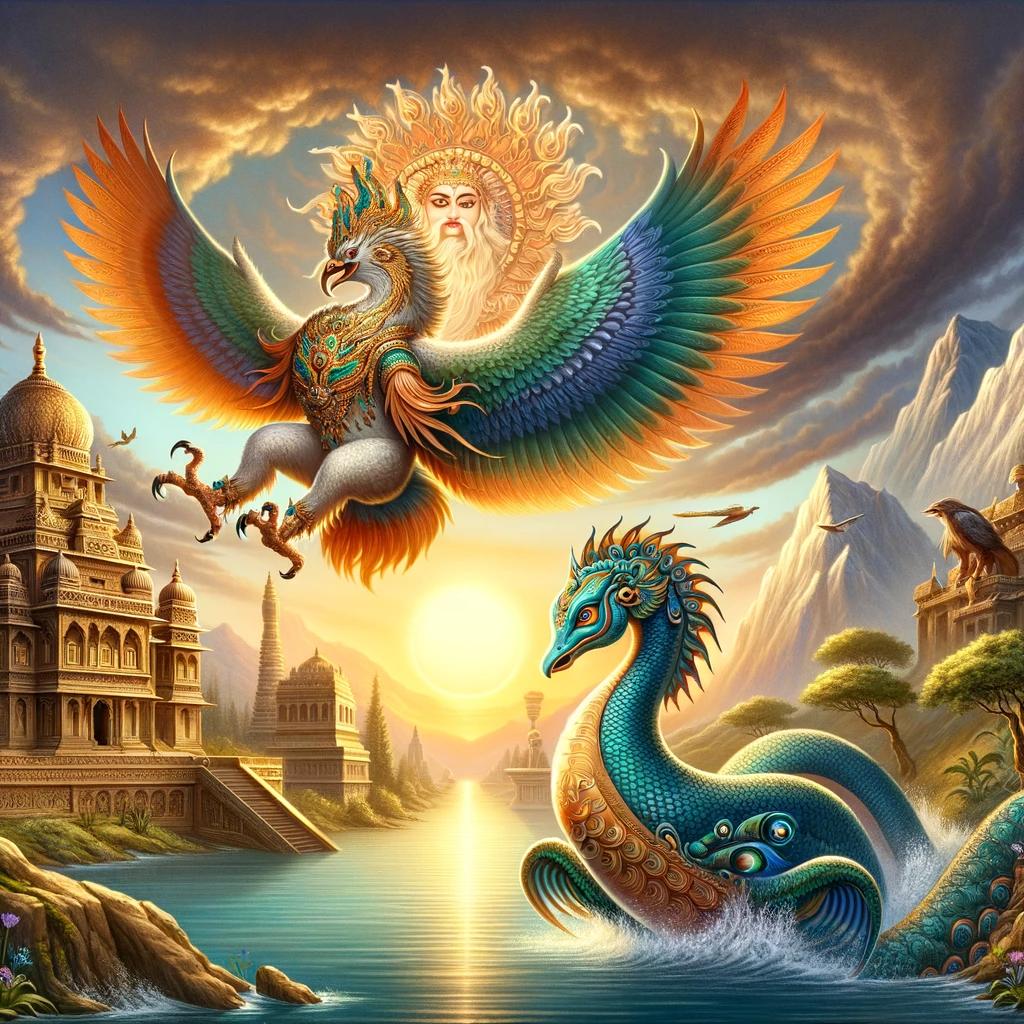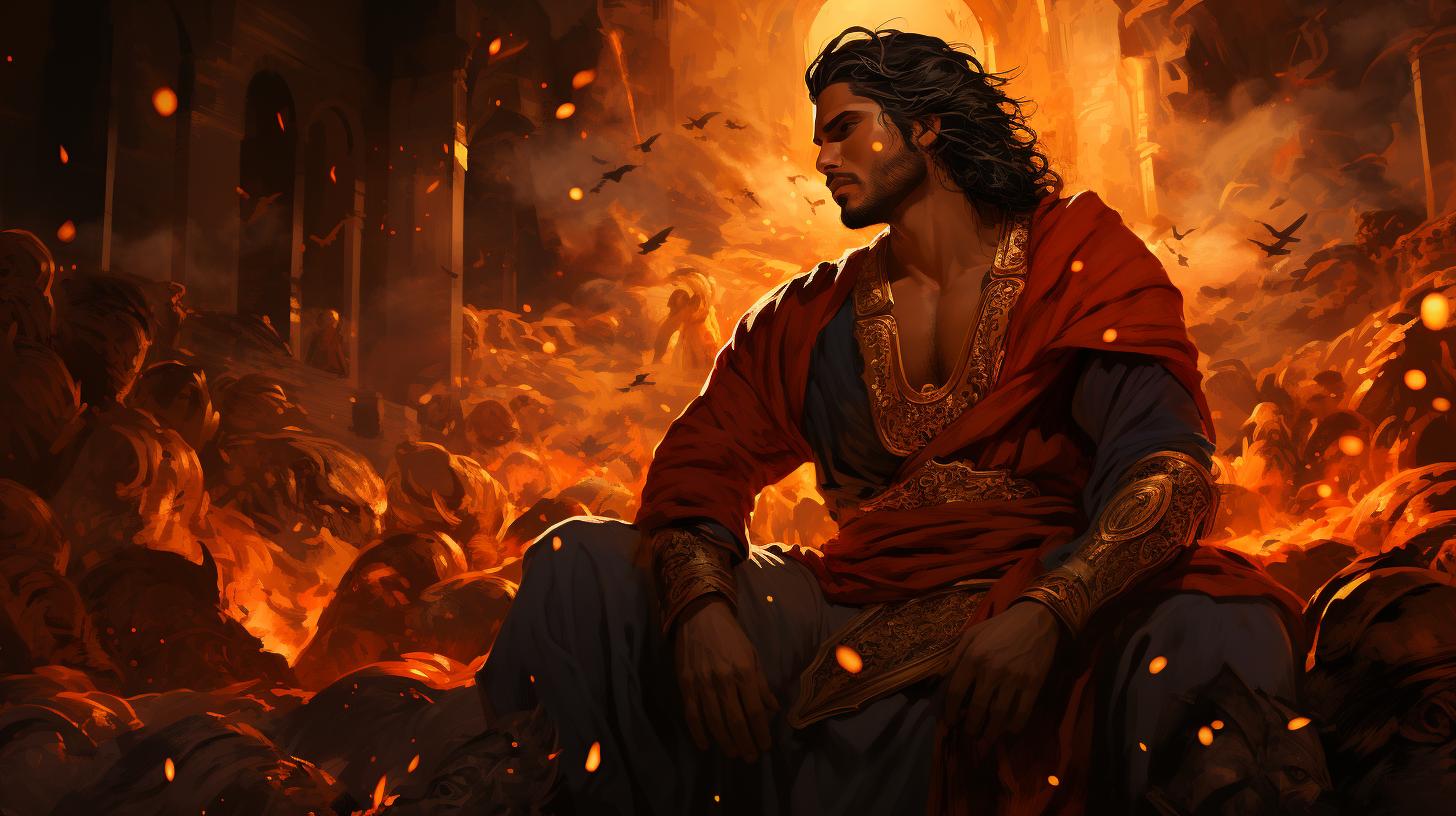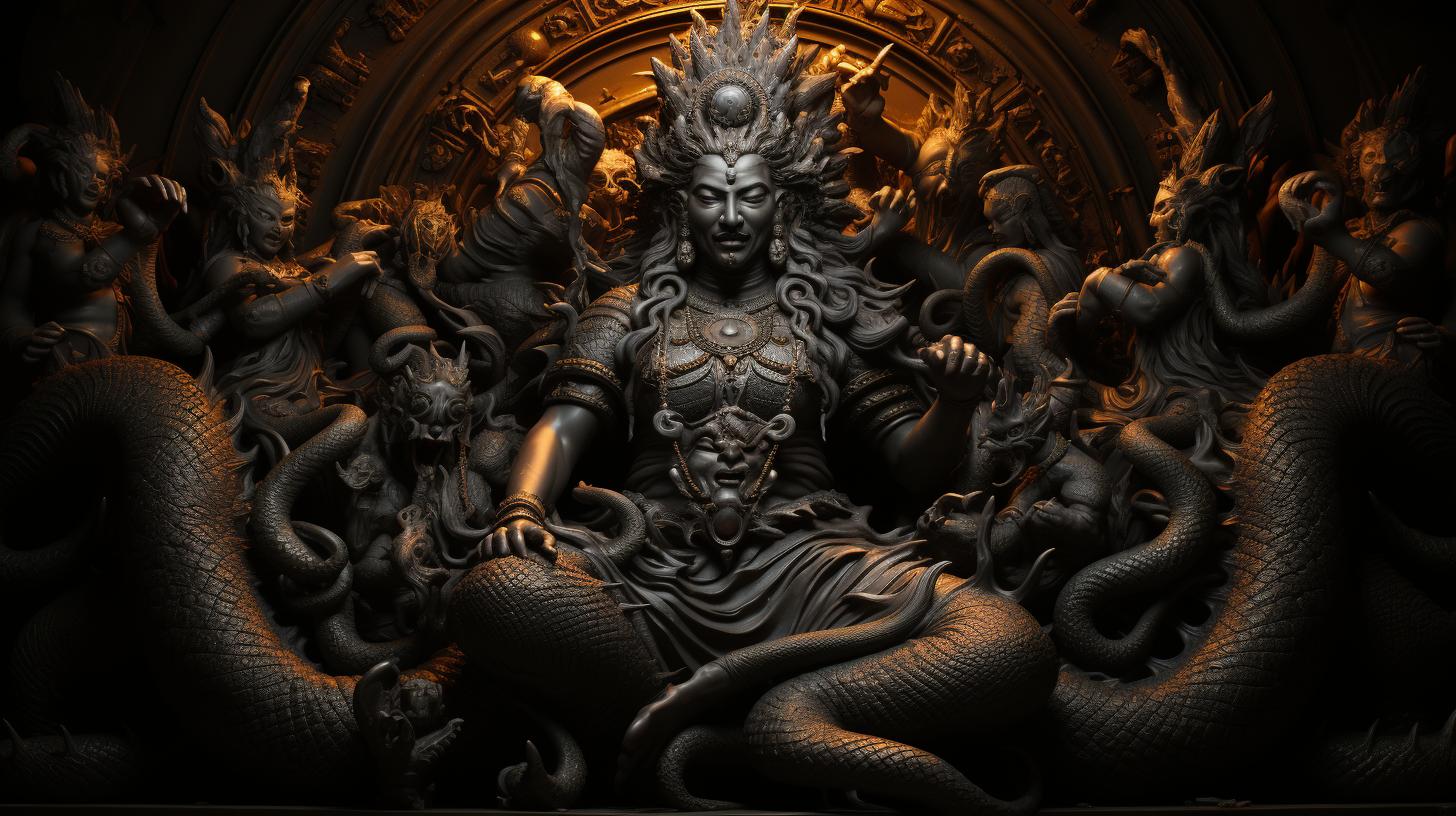Who is Jambavan in Ramayana: A Mythological Guide to the King of Bears
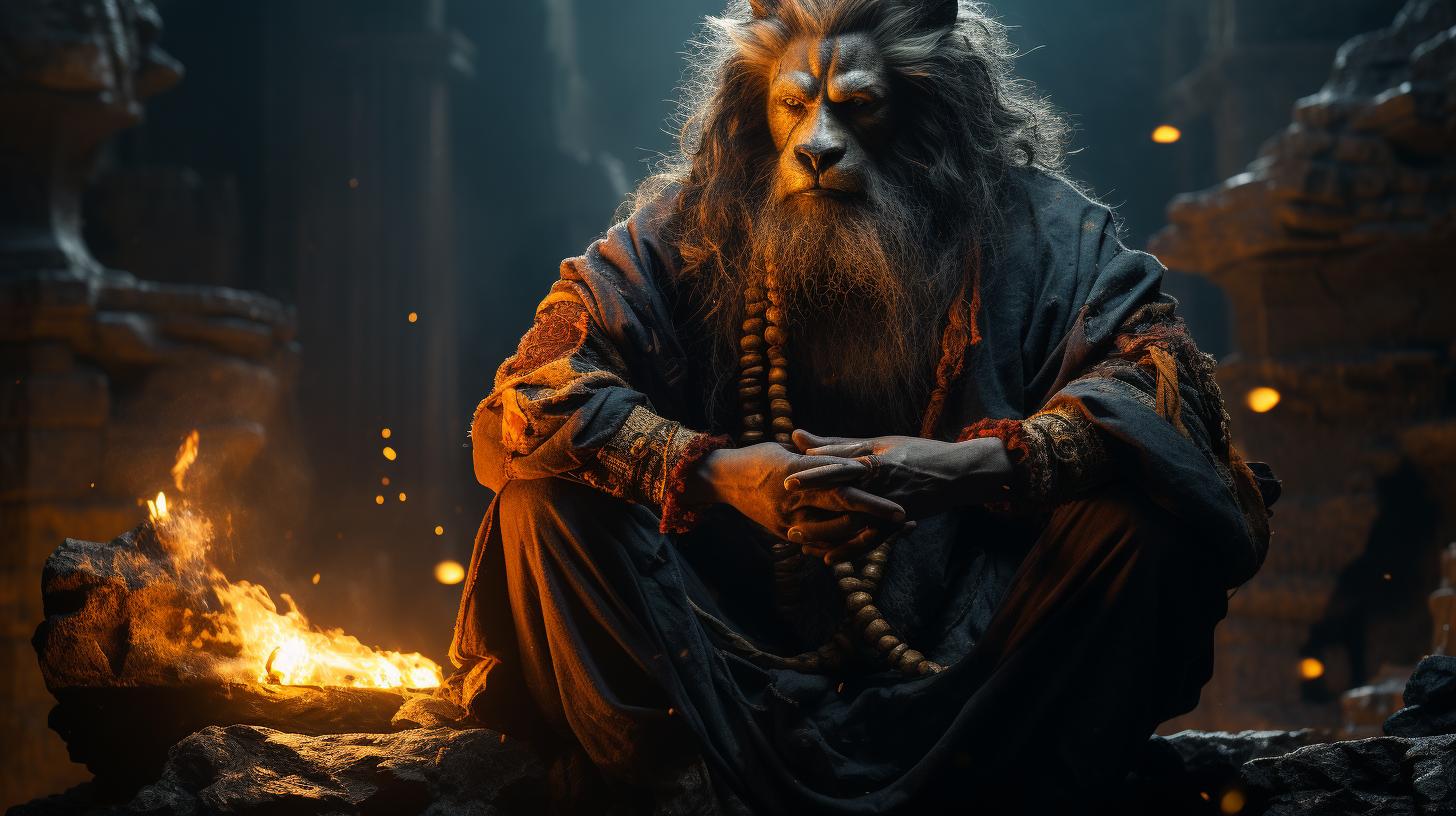
Jambavan, also known as Jamvanta or the King of Bears, holds significant importance in the epic of Ramayana. Created by Lord Brahma to aid Lord Rama in his battle against demon king Ravana, Jambavan played a vital role in various events.
He aided in the search for Rama’s wife, Sita, advised Sugriva, and motivated Hanuman on his journey. Jambavan’s presence can also be seen in Mahabharata, where he encountered Krishna and participated in battles.
His symbolism and legacy continue to have significance in Hindu mythology.
Jambavan: The King of Bears
Mythological Background and Origins
Jambavan, also known as the King of Bears, holds a significant place in the Hindu epic of Ramayana. According to mythology, he was created by Lord Brahma himself, specifically to aid Lord Rama in his battle against the demon king Ravana. Jambavan’s origins are rooted in divine craftsmanship, and his creation serves as a testament to his importance in the larger narrative.
Roles and Importance in Ramayana
Jambavan’s Role in the Search for Sita
During the search for Rama’s abducted wife, Sita, Jambavan played a crucial role in guiding and advising the troop of Vanaras (monkeys). His wisdom and experience as the King of Bears helped in strategizing and overcoming obstacles in their quest to find Sita. Jambavan’s presence and counsel were instrumental in the eventual success of the mission.
Jambavan as an Advisor to Sugriva
Jambavan served as an advisor and confidant to Sugriva, the monkey king and ally of Lord Rama. His wise counsel and strategic insights helped Sugriva regain his lost kingdom and form a strong alliance with Rama. Jambavan’s expertise in matters of diplomacy and governance were highly valued by the Vanara king.
Jambavan’s Encounters with Ravana
Jambavan’s bravery and strength were put to the test during direct confrontations with the formidable demon king Ravana. In these encounters, Jambavan showcased his prowess in battle, delivering powerful blows and incapacitating Ravana. His strategic contributions were crucial in weakening Ravana’s forces and facilitating Rama’s ultimate victory.
Jambavan’s Contribution to Hanuman’s Journey
Jambavan played a pivotal role in motivating and inspiring Hanuman, the revered Vanara warrior, to undertake the treacherous journey to locate Sita in Lanka. Recognizing Hanuman’s extraordinary abilities, Jambavan instilled confidence in him and encouraged him to use his incredible strength and intelligence to accomplish the mission.
This support from Jambavan proved crucial in the successful execution of Hanuman’s mission.
Continued in Part 2…
Jambavan in Mahabharata
In addition to his significant role in the Ramayana, Jambavan also makes appearances in the Mahabharata, another ancient Indian epic. In this epic, Jambavan’s encounters with Krishna and his contributions stand out, showcasing his valor and wisdom.
Jambavan’s Encounter with Krishna
During his search for the gem Syamantaka, Krishna came across Prasena, who had been killed by a lion. Suspected of the murder, Krishna tracked the lion’s footsteps and discovered that the lion had been killed by none other than Jambavan.
This sparked a fierce battle between Jambavan and Krishna that lasted for twenty-eight days.
The Battle with the Lion and the Gem Syamantaka
Jambavan had obtained the precious gem Syamantaka from Prasena and, unaware of Krishna’s divine nature, had engaged in the battle to protect it. The fight was intense, with both Jambavan and Krishna exhibiting their formidable strength and skills.
However, as the battle prolonged, Jambavan gradually realized the true identity of Krishna.
Jambavan’s Surrender and Meeting with Krishna
Recognizing Krishna as the Supreme Being, Jambavan eventually conceded defeat and surrendered. In his surrender, Jambavan presented the Syamantaka gem to Krishna, acknowledging his divinity. Furthermore, Jambavan introduced his daughter, Jambavati, to Krishna, who eventually became one of Krishna’s esteemed wives.
These encounters with Krishna in the Mahabharata further highlight Jambavan’s significance in Hindu mythology and portray him as a formidable and accomplished character. His valiant battles and eventual realization of Krishna’s divinity showcase his reverence and surrender to higher powers.
Jambavan’s Significance in Hindu Mythology
Jambavan, the revered King of Bears, holds profound symbolism and is associated with various traits in Hindu mythology.
Symbolism and Traits Associated with Jambavan
- Wisdom and Knowledge: Jambavan is considered a symbol of wisdom and knowledge, revered for his astuteness in both battle and governance.
- Strength and Courage: With his immense strength and fearless nature, Jambavan embodies the virtues of strength and courage, making him a formidable warrior.
- Loyalty and Devotion: Jambavan’s unwavering loyalty towards Lord Rama and dedication to the cause of righteousness exemplify the qualities of loyalty and devotion in Hindu mythology.
- Protector and Guide: As the King of Bears, Jambavan symbolizes protection and guidance, offering his wisdom and assistance to individuals in need.
Jambavan’s Legacy and Temples Dedicated to Him
Jambavan’s legacy continues to be honored through temples dedicated to his worship.
Devotees visit these sacred places to seek blessings and gain inspiration from Jambavan’s illustrious character. Some prominent temples include:
- Sri Jambukeswarar Temple in Tamil Nadu: This ancient temple dedicated to Lord Shiva also pays homage to Jambavan as one of its revered deities.
- Jambavantha Temple in Gujarat: Situated in Jamnagar, this temple celebrates Jambavan’s valor and revered status, attracting devotees from far and wide.
- Sri Jambavantha Hanuman Temple in Karnataka: This temple in Hampi is dedicated to Jambavantha and Lord Hanuman, showcasing their profound connection and influence.
Other References and Stories Involving Jambavan
Jambavan’s influence extends beyond the Ramayana and the Mahabharata.
His name appears in various other stories and ancient scriptures, showcasing his enduring significance in Hindu mythology. Some notable references include:
- The Devi Bhagavatam: Jambavan’s role and valiant deeds are mentioned in this sacred text, further emphasizing his heroic stature.
- The Vishnu Purana: Jambavan’s encounters and contributions are documented in this scripture, highlighting his importance in the tales of Lord Vishnu’s triumph over evil forces.
These references and stories serve as a testament to Jambavan’s enduring presence in Hindu mythology and his influential role as a symbol of strength, wisdom, and devotion.
.

